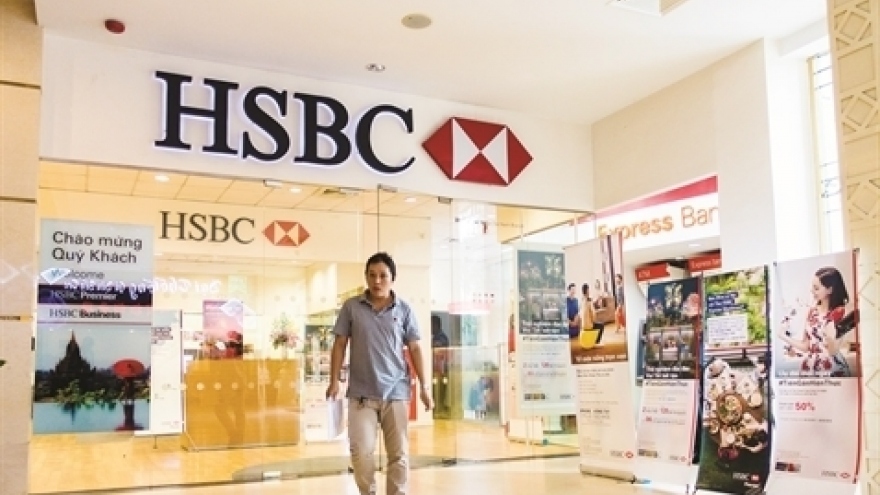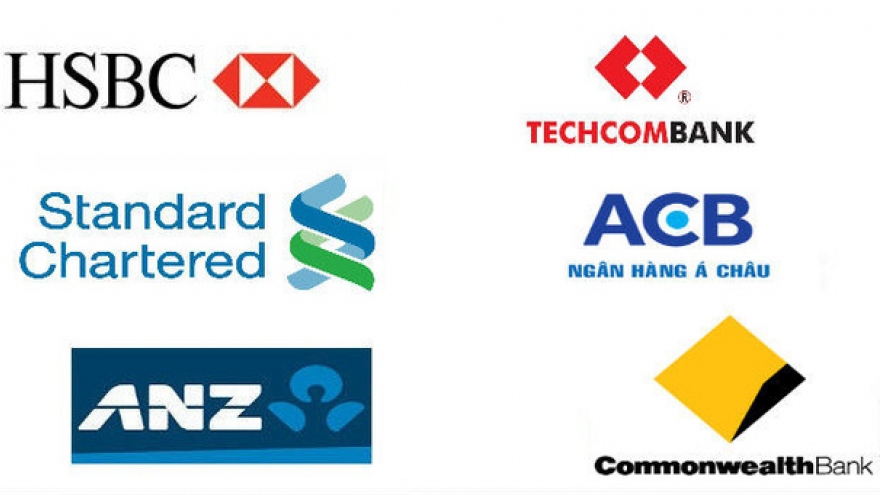Why foreign banks are turning tail and pulling out of Vietnam
HSBC, Standard Chartered and BNP Paribas are just some of the institutions that have joined a mass exodus.
Foreign banks concerned about high bad debt ratios and poor risk management in Vietnam have been steadily withdrawing their investments from local credit institutions.
The most recent case was Standard Chartered Bank, which sold its entire 8.75% stake in Vietnam’s publicly listed Asia Commercial Bank (ACB) in January after a 12-year partnership.
 |
| Foreign banks have accelerated their divestment from Vietnam over the past few years. Photo by VnExpress |
Standard Chartered had previously withdrawn its representatives from ACB’s board of directors for unspecified reasons.
Late last year, France’s BNP Paribas divested its entire 18.68% stake in the local Orient Commercial Bank (OCB), ending a decade-long partnership.
Also in 2017, HSBC sold is majority 20% stake in Techcombank, while the Commonwealth Bank of Australia (CBA) offloaded a 20% stake in VIB.
Economist Nguyen Tri Hieu said that foreign banks have accelerated their divestments from Vietnam over the past few years after rushing to invest in the country nearly two decades ago. The exodus gathered momentum in 2017.
Explaining the reasons for the sell-offs, he said many international banks have been unsatisfied with their businesses in Vietnam because of high bad debt ratios and poor risk management at local financial institutions, and a non-transparent legal system. Meanwhile, other lucrative markets have sought ways to draw their investment.
“The business environment in Vietnam is quite different from in their countries. Foreign banks have found it hard to do business in Vietnam due to overlapping legal regulations and inefficient risk management at local banks,” Hieu said.
Most foreign banks have invested in Vietnam under strategic partnerships or other joint arrangements with local partners.
A high ratio of non-performing loans has also contributed to reducing the attractiveness of Vietnamese banks, he said.
Bad debt in Vietnam's banking sector, mostly incurred due to a slowdown in the country’s real estate market in the early 2010s, had been cut to 2.34% by the end of September 2017, down from 2.46% at the end of the previous year, according to the central bank.
A low foreign ownership cap is another reason for the capital withdrawals by foreign partners, who have been waiting for the limit to increase for many years now, economists said.
The 30-percent cap covers total foreign shareholdings and limits a single foreign strategic investor to a one-fifth stake in a local bank.
This has proved unattractive for many foreign lenders who see little incentive in a minority share and limited control of banks requiring restructuring and recapitalization.
A limit increase would help retain foreign investors, many economists concluded.
Some other experts and industry insiders said the foreign capital withdrawal is individual and normal moves. It is not a trend. Foreign banks could leave a market for a new one when having new business strategies.
For example, Australian lender ANZ sold its retail business in Vietnam to the Republic of Korea's Shinhan in 2017.
Farhan Faruqui, ANZ's international group executive, said in a statement that the sale will allow the bank to focus its resources on institutional banking, its “largest business in Asia.”
“We will be maintaining our presence through our institutional bank in Vietnam which will continue to support our corporate clients in the Greater Mekong Region,” he said.
Nguyen Dinh Tung, CEO of the Orient Commercial Bank (OCB), said, “Banks leave markets where their business is ineffective or competition is too fierce. This happens not only in Vietnam, but in many other countries.”
Vietnam now has seven wholly-owned foreign banks, as well as 50 branches and more than 50 representative offices of foreign banks and joint-venture banks. Their total assets have topped US$35.8 billion.



